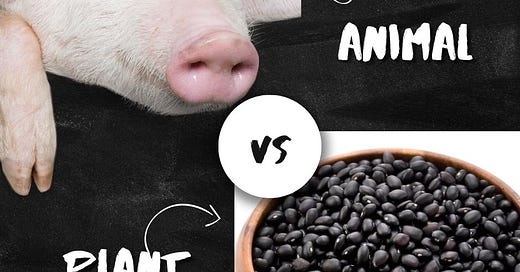Protein Bioavailability: Is animal protein better for humans than plant protein?
New research sheds light on the animal vs plant protein debate
In order for your body to grow and repair itself, you need to eat the right amount of nutrients. These nutrients come in the form of proteins, carbohydrates, fats and water. Your body disassembles the food you eat into component parts, and then uses those parts to create elements in the human body. That’s why you have human DNA, muscles and tissues and not the tissues of beef or broccoli that you consume.
Your diet provides the building blocks that your body uses to grow and repair itself. If your diet is deficient in important nutrients, then your body cannot function the way it is designed to function, and you may fall ill.
Nowhere is this more critical for humans than with protein bioavailability. Proteins are themselves made up of amino acids. Only 20 amino acids are found within the human body, most of which we can make ourselves. However, there are 9 Essential Amino Acids (EAAs) that mammals cannot create. These 9 EAAs must come from your diet.
Currently there is a push for us all to eat a more plant-based diet. The challenge with this is that most plants do not have all 9 EAAs. Most plants are not complete proteins. All animal protein, however, is complete including the 9 EAAs.
New research has demonstrated that our ability to absorb EAAs differs significantly between plant-based and animal-based proteins.
Let’s take a closer at protein bioavailability and what this latest study may mean for your diet plans moving forward.




